
OSCLG presents a series of awards each year honoring members for their scholarship, teaching and mentoring, and creative activity.

Current Award Winners
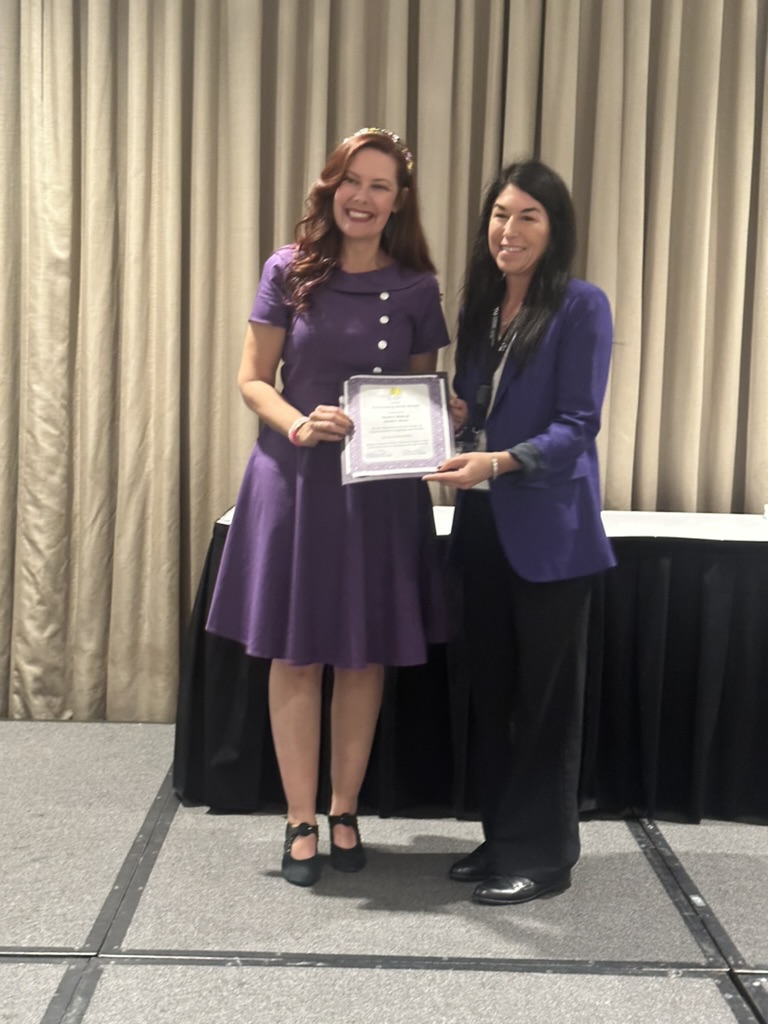
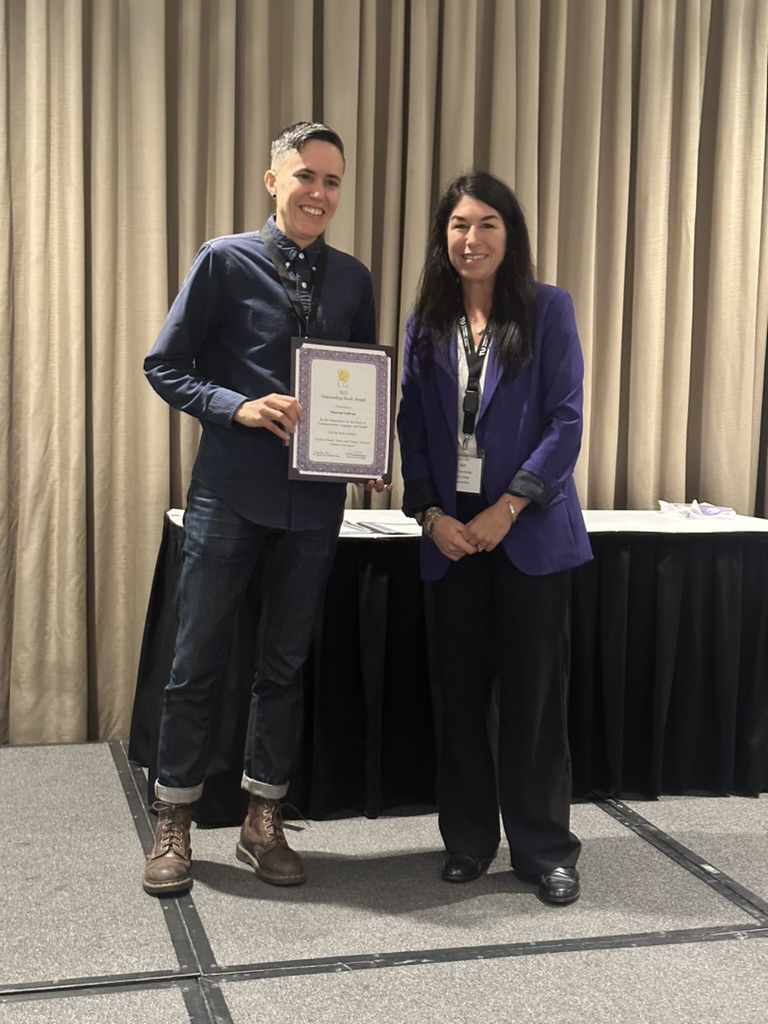
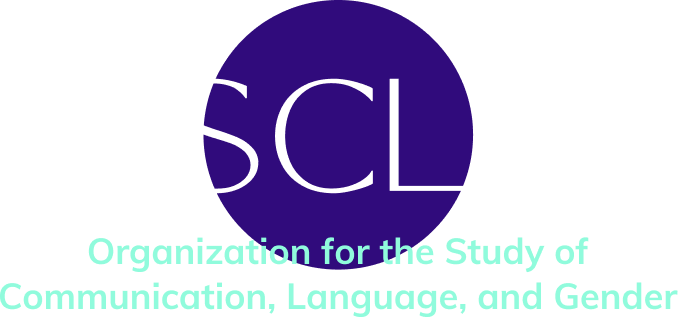
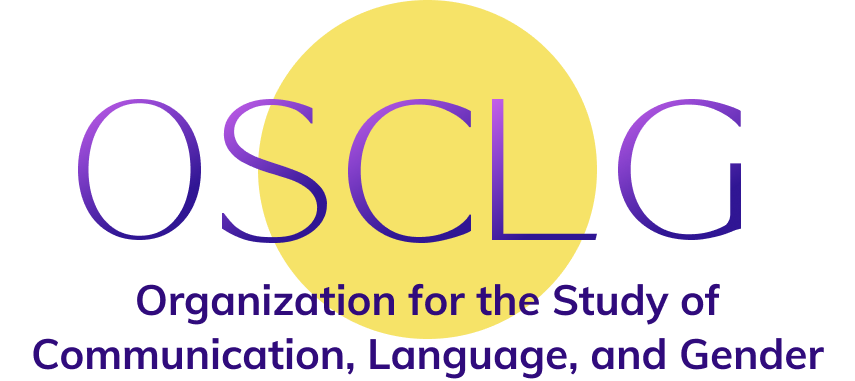
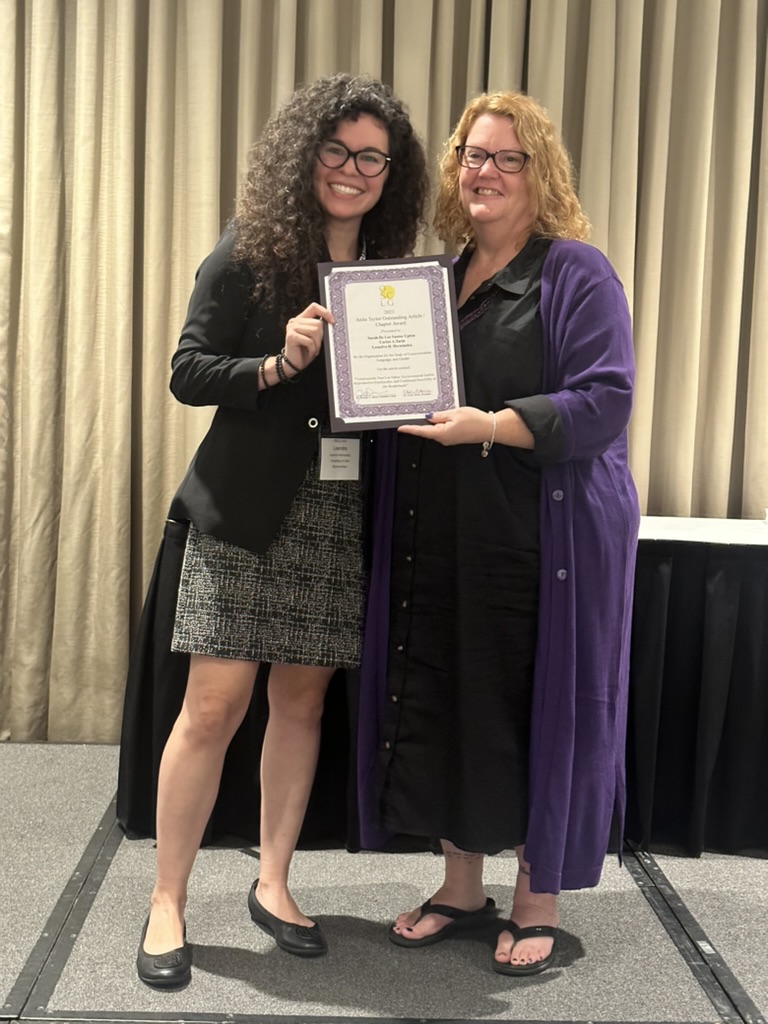
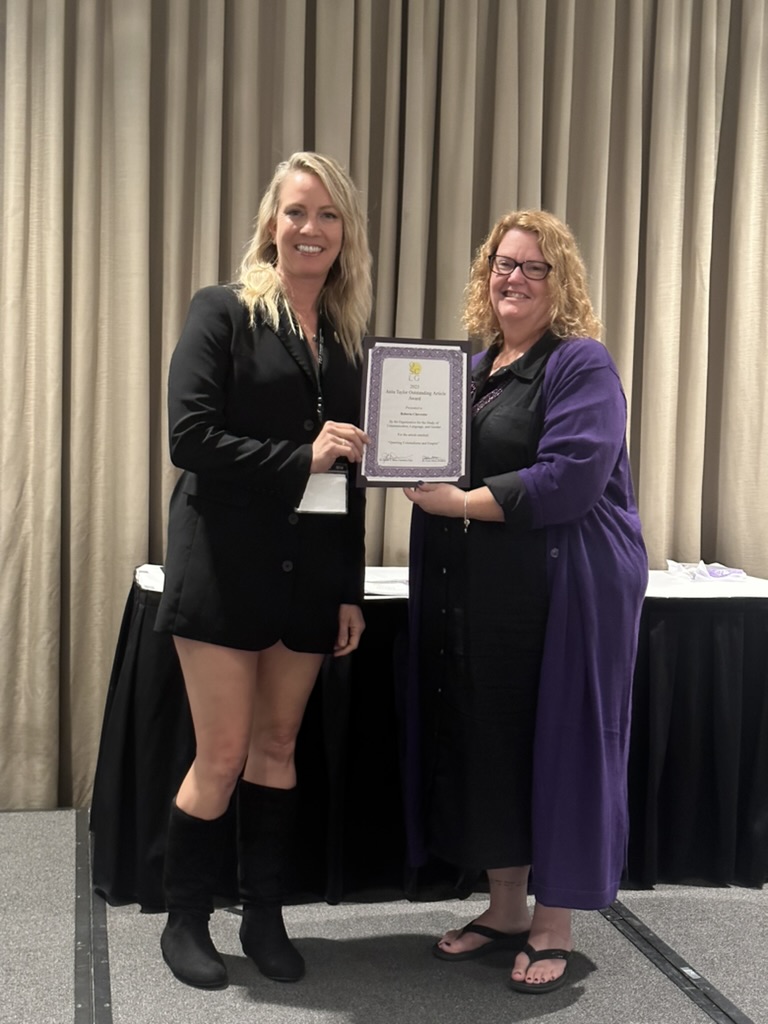

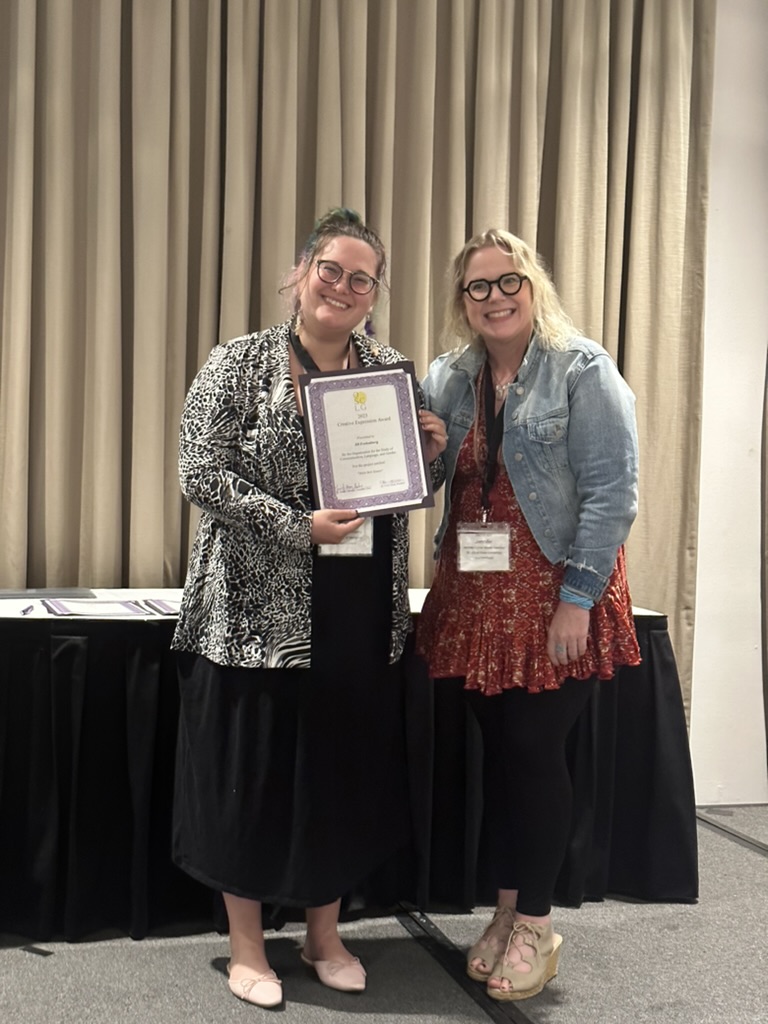


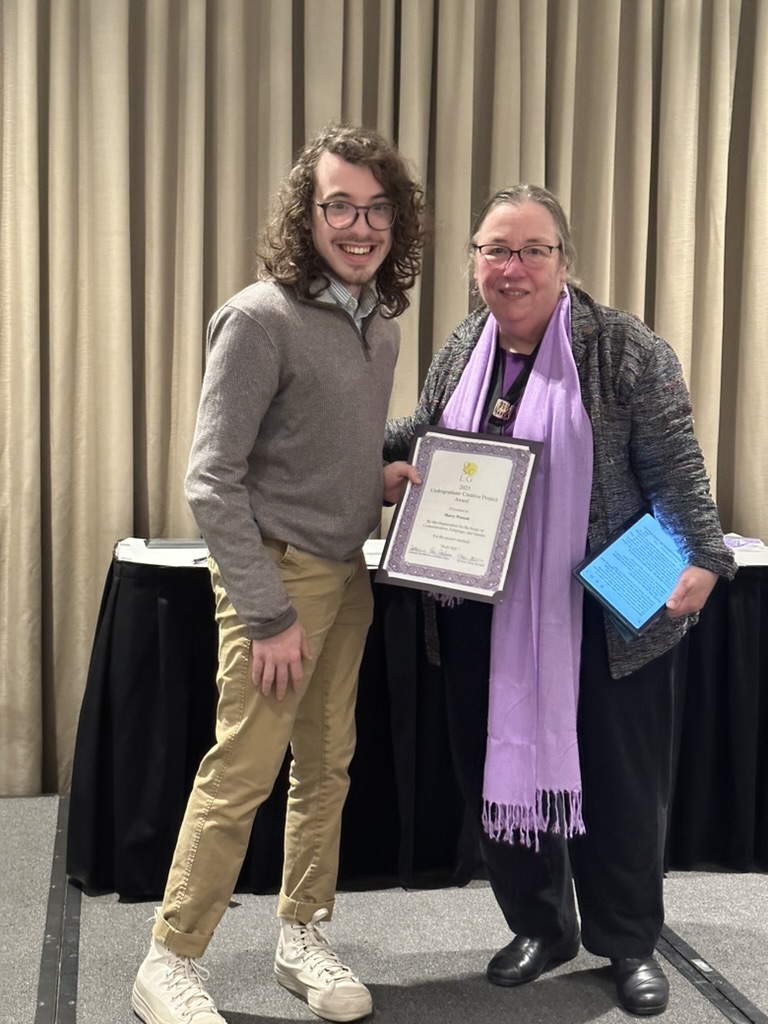
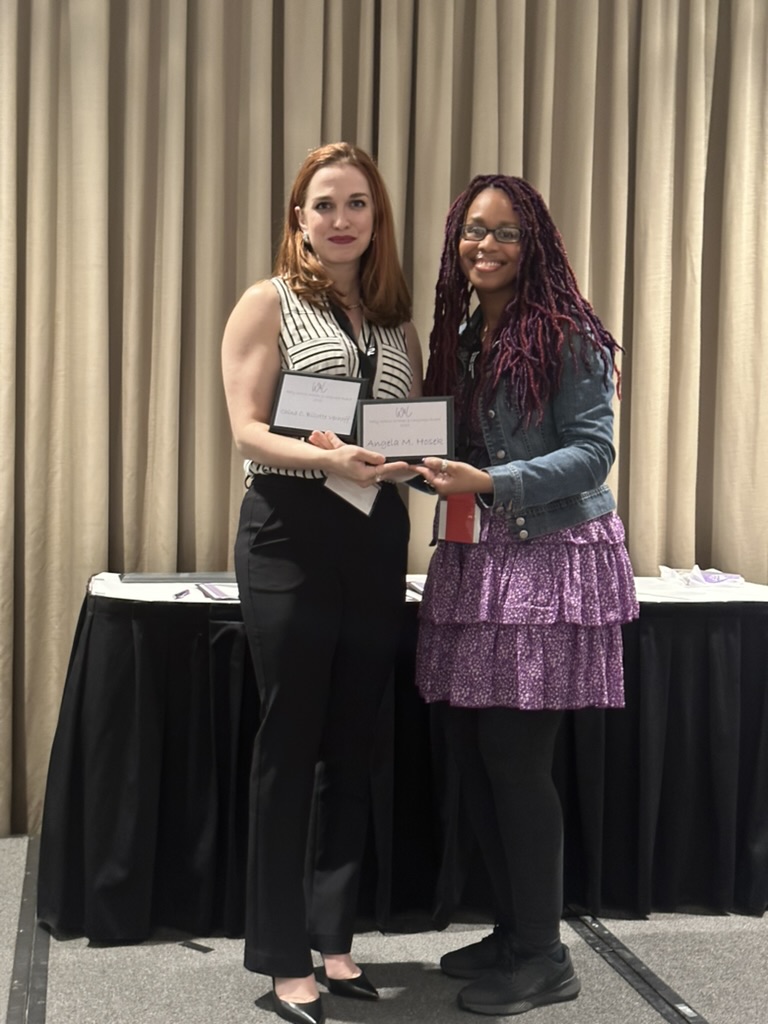

Previous Award Winners
2022: Rachel Tucker “Oh, by the way, I’m broken. So, if you’re expecting an orgasm, it probably will not happen”: An exploration of stigma perceptions, experiences, and management of sexual health through disclosure processes.
2021: Nancy Heise, “Halsey’s A Story Like Mine: Exploring The Rhetorical Constraints For Muted Group Members And Reframing Rationality Expectations For Narratives About Muted Experiences”
2020: Madeleine Michalik, “The “Incompetent” Cervix and the “Good” Mother”
2019: Elizabeth Hintz
2018: Jessica M. Peterson, “Funny in a Man’s World: Women Comedians’ Use of Political Satire at the White House Correspondents’ Dinner”
2017: Danielle Corple, “Beyond the Gender Gap: Understanding Women’s Participation in Wikipedia”
2016: Sakeenah Y. Gallardo (thesis pen name Jacqueline LaReux), “A Girl Child Ain’t Safe in a Family of Men”: Breaking the Secrecy Between African-American Mothers and Daughters about Familial Childhood Sexual Abuse”
2014: Melissa Lucas, “The Brotherhood Will Not Protect You: Mapping (Dis)Empowering Communication in Military Sexual Trauma Narratives”
2013: Julianna Kirschner, “The Spaces in Between: Grief from an Autoethnographic Perspective.”
2012: Margeaux Beth Lippman, “Jesebel and the Third Wave Processes of Collective Identity and Resistance in New Media Feminist Texts”
2011: Megan Rachel Tomei, “She Just Snapped: Reality Television, Murder, and the Myth of Feminine Evil”
2022: Carly Thomsen, Visibility Interrupted: Rural Queer Life and the Politics of Unbecoming
2021: Annette D. Madlock and Cerise L Glenn, Womanist Ethical Rhetoric: A Call for Liberation and Social Justice in Turbulent Times
2020: Theresa A. Kuilbaga & Leland Spencer, Campuses of Consent: Sexual and Social Justice in Higher Education
2020: Leandra H. Hernandez and Robert Gutierrez-Perez, This Bridge Called Communication: Anzalduan Approaches to Theory, Method, and Praxis
2019: Elizabeth Son, Embodied Reckonings: ‘Comfort Women,’ Performance, and Transpacific Redress
2019: Anna Wiederhold Wolf, Sarah Blithe and Breanna Mohr, Sex and Stigma: Work and Life in Nevada’s Legal Brothels
2018: Katie Gibson, Ruth Bader Ginsburg’s Legacy of Dissent: Feminist Rhetoric and the Law
2017: Robin Jensen Infertility: Tracing the History of a Transformative Term
2016: Lynn O’Brien Hallstein Bikini-Ready Moms
2016: Leland Spencer & Jamie Capuzza Transgender Communication Studies: Histories, Trends, and Trajectories
2015: Rachel E. Silverman & Jay Baglia (Editors) Communicating Pregnancy Loss: Narrative as a Method for Change
2015: Sarah Jane Blithe Gender Equality and Work–Life Balance: Glass Handcuffs and Working Men in the U.S.
2014: Kristina Horn Sheeler & Karrin Vasby Anderson Woman President: Confronting Postfeminist Political Culture
2013: Karma R. Chávez & Cindy L. Griffin (Editors) Standing in the Intersection: Feminist Voices, Feminist Practices in Communication Studies
2013: Tasha N. Dubriwny The Vulnerable Empowered Woman: Feminism, Postfeminism, and Women’s Health
2012: Tony E. Adams Narrating the Closet: An autoethnography of same-sex attraction
2012: Maurice Hamington & Celia Bardwell-Jones Contemporary Feminist Pragmatism
2011: Kristy Maddux The Faithful Citizen: Popular Christian Media and Gendered Civic Identities
2011: Sara Hayden & Lynn O’Brien Hallstein (Editors) Contemplating Modernity in an Era of Choice: Explorations into Discourses of Reproduction
2022: Zhenyu Tian, Women Entrepreneurs in China: Dialectical Discourses, Situated Activities, and the (Re)production of Gender and Entrepreneurship
2021: Rico Self, “Ties that Bind: Black Familyness and the Politics of Contingent Coalitions”
2021: Jennifer Rome, “Exploring Constructions Of ‘Good’ Motherhood On Social Media: Navigating Neoliberal Mommy Rhetorics and the Negative Affective Entanglements of Women’s Discourses On Pinterest, Facebook, and Instagram”
2020: Naila Althagafi, “Muslim Women’s Authority in Sacred Spaces”
2019: Rebekah Crawford, “A Spectrum of Silence and the Single Storyteller: Stigma, Sex and Mental Illness among the Latter-day Saints”
2018: Laurena Bernabo, “Translating Identity: Norms and Industrial Constraints in Adapting Glee for Latin America”
2017: Patricia Getting “Understanding the Communicative Processes of Baby Boomer Women Adjusting to Retirement: Connecting Micro and Macro Discourses”
2016: Julia Moore “From Childless by Choice to Mother: Performative And Subversive Negotiations of Face in Relational Communication about (Never) Having Children”
2013: Korryn D. Mozisek “Throwing Like a Girl! Constituting Citizenship for Women and Girls in America’s Pastime”
2013: Alyssa Samek “Crafting Queer Identity and Envisioning Liberation At The Intersections: A Rhetorical Analysis of 1970s Lesbian-Feminist Public Discourse.”
2012: Brianne Waychoff “Composing a Method Écriture Féminine as Performance Practice”
2012: (*Honorable mention) Sarah Blithe “Investigating the Glass Handcuff: Gendered Discourses, Occupational Identities, and the Leave Taking Practices of Men in Technical Occupations”
2011: Kristen Norwood “Here and Gone: Competing Discourses in the Communication of Families with a Transgender Member”
2022: Elizabeth K. Eger, “Co-Constructing Organizational Identity and Culture With Those We Serve: An Ethnography of a Transgender Nonprofit Organization Communicating Family Identity and Identification
2022: Gloria Nziba Pindi, Promoting African knowledge in communication studies: African feminisms as critical decolonial praxis
2021: Raquel Moreira, “De-Whitening Intersectionality through Transfeminismo”
2021: Fatima Zahrae Chrifi Alaoui, “Morocco from a Colonial to a Postcolonial Era: The Sociopolitical Environment through a Grandmother’s Autoethnography”
2020: Laurena Bernabo, “Expanding Television’s Cultural Forum in the Digital Era: Prime Time Television, Twitter, and Black Lives Matter.” Journal of Broadcasting & Electronic Media 63, no. 1 (77-93)
2019: Jennifer Freitag, “Four Transgressive Declarations for Ending Gender Violence.”
2019: Michele Kennerly & Carly Woods “Moving Rhetorica”
2018: Melissa L. Carrion, You need to do your research”: Vaccines, Contestable Science, and Maternal Epistemology, Public Understanding of Science 27:3, 310-324 (2018)
2018: Kate Lockwood Harris,“Re-situating Organizational Knowledge: Violence, Intersectionality, and the Privilege of Partial Perspective, Human Relations, 70:3, 263-285, (2017)
2017: Tristan Booth & Leland G. Spencer, Sitting in Silence: Managing Aural Body Rhetoric in Public Restrooms, Communication Studies, 67:2, 209-226. (2016)
2016: Patrice M. Buzzanell, Ziyu Long, Lindsey B. Anderson, Klod Kokini, and Jennifer C. Batra, Mentoring in Academe: A Feminist Poststructural Lens on Stories of Women Engineering Faculty of Color, Management Communication Quarterly 29: 3
2015: Karla Scott, Communication Strategies across Cultural Borders: Dispelling Stereotypes, Performing Competence, and Redefining Black Womanhood, Women’s Studies in Communication 36:3, 312-329
2015: Elizabeth Arveda Kissling, Pills, Periods, and Postfeminism: The new politics of Marketing Birth Control, Feminist Media Studies 13:3, 490-504
2013: Ellingson, L. E., & Quinlan, M. M. (2012). Beyond the research/service dichotomy: Claiming ALL research products for hiring, evaluation, tenure, and promotion. Qualitative Communication Research, 1, 385-400.
2012: Sara McKinnon, Positioned in/by the State: Incorporation, Exclusion, and Appropriation of Women’s Gender-Based Claims to Political Asylum in the United States. Quarterly Journal of Speech 97:2, 178-200
2011: Maggie Quinlan & Lynn Harter, Meaning in Motion: The Embodied Politics of Dancing Wheels” Text and Performance Quarterly 30:4, 374-395
2022: Shauna MacDonald, Light
2021: Cypress Amber Reign Johnson and Wriply M. Bennet, Transfuturism
2021: Nikki Yeboah, “The (M)others”
2020: Pavithra Prasad, “Notes on the Terrestrial Performance of Outer Space”
2019: Jade Huell, “Caged Bird.”
2019: Andrew R. Spieldenner, “The Presence of Absences.”
2018: Bethany Johnson, Dr. Margaret M. Quinlan, and Rowan Reyes, Greetings in the gap: Participant-generated support messages and emotional support for fertility patients
2017: Heidi M. Rose, Twin (Performance)
2016: Desireé D. Rowe, Reflections on Depressive Realism
2015: Paul Muhlhauser & Daniel Schafer, Avengendering of the Lambs: Gender, Heroines, and Villains
2012: Bren Ortega Murphy, A Question of Habit: The Depiction of Women Religious in U.S. Popular Culture
2011: Angela Day
2022: Leland Spencer & Theresa Kulbaga, “Outrage Epistemology: Affective Excess as a Way of Knowing in Feminist Scholarship”
2021: Leland Spencer, “National Geographic’s Racial Apology: A Half-Performative Conference Talk”
2020: Briana R. Taylor, “Homegrown Safety: Community Participation and Violence Prevention”
2020: Zhiqiu Benson Zhou, “Beyond Tongzhi and Sexual Identities’ Instability in China”
2019: Nancy Henaku, “Resistance, Discursive Activism and Gender Politics in Ghanaian Social Media: A Feminist Critical Discourse Analysis.”
2018: Leland Spencer, “Bathroom Bills, Memes, and a Biopolitics of Trans Disposability”
2017: Bethany Johnson & Margaret M. Quinlan “This is your job, to me it means the world: Female patients’ perceptions of nurses’ communication during Reproductive Endocrinology & Infertility (REI) treatment.”
2016: Jamie Capuzza and Leland Spencer “Regressing, Progressing, or Transgressing on the Small Screen? Transgender Characters on U.S. Scripted Television Series”
2016: Jenny Korn “Expecting Penises in Chatroulette: Representations of Gendered and Racialized Selves in Anonymous Online Spaces”
2015: Sarah Blithe & Jenna Hanchey, “Fleshing Out Bodyism: Body Composition Discrimination and the Discursive Construction of Gender Verification Testing”
2012: Danielle M. Stern “It Takes a Classless, Heteronormative Utopian Village: A Feminist Exploration of Family on Gilmore Girls.”
2011: Mary Tucker-McLaughlin & Kenneth Campbell “Making News: A Grounded Theory Analysis of TV News Broadcasts of Hillary Clinton from 1993-2008”
2022: Tina Harris, Louisiana State University
2021: Allison Page, Old Dominion University
2020: Sharde Davis, University of Connecticut
2019: Lisa Hanasono, Bowling Green University
2019: Dr. Jessica Kratzer, Northern Kentucky University
2019: Danielle Stern, Christopher Newport University
2018: Bren Ortega Murphy, Loyola University Chicago
2018: Jane Jorgenson, University of South Florida
2017: Bethany Olson, University of North Caroline Charlotte
2017: Siobhan Smith, University of Louisville
2016: Valerie R. Renegar, Southwestern University
2016: Cerise L. Glenn, University of North Carolina at Greensboro
2014: Adrianne Kunkel, University of Kansas
2013: Cheris Kramarae, University of Oregon
2013: Kathy Denker, Ball State University
2012: Brenda Allen, University of Colorado, Denver
2012: Deborah Ballard-Reisch, Wichita State University
2011: Lynn Harter, Ohio University
2022: Robyn Curtis, Underrepresentation of Indigenous Women in STEM: An Indigenous feminist critique of labor structure, kinship, and social network.
2021: Rebecca Monroe, “Denying Access to Comprehensive Reproductive Health Care: An Analysis of SLO Crisis Pregnancy Center Websites.”
2020: Mac Clark, “Hello! I’m Fat: Finding Myself in a Hulu Original”
2019: Pak Youngkang Vincent, “’I am Gay’: Identities and performance pragmatics in the coming-out narratives of Singaporean Gay men.”
2018: Aston Patrick, “Ur so Hawt”: The Presentation of Gender in Online Game Streaming.”
2017: Kelsey McDougall, “Killing Kilgrave: Recontextualizing Rhetorical Constructions of Hegemonic Masculinity in Jessica Jones”
2017: Mariann Fant, “A Rhetorical Criticism of the Stanford Rape Letter: A Case for Compulsory Heroism.”
2015: Berkley Connor, “Smiling”
2013: Austin Williams “Political Housewives: Ann Romney, Feminine Style, and Candidate Spouse Rhetoric.”
2012: Kelly Clemente “Autoethnography of a ‘Typical’ Birthmother and Adoptive Sister: Analyzing the Intersections of Identity, Postmodernism, Popular Culture, and Adoption.”
2022: Shilyh Warren of the University of Texas at Dallas and Beatrice Balanta, Independent Scholar, for their article, “Revolution is Another Climax.” Women & Language, 44(2), 205-242.
2021: Celeste Wells, Stained: Courtesy stigma and families of the incarcerated. Women & Language, 43(1), 38–63
2020: Kristin Denise Rowe, “Beyond “Good Hair”: Negotiating Hair Politics through African American Language”
2022: Victorine Mbongshu
2022: Anh Nguyen
2021: Kerry Wilson
2021: Anh Tuan Nguyen
2021: Alexis Brown
Stay Connected
Joining the OSCLG listserve is a way to receive updates about OSCLG events, research opportunities, job postings, and more. To join the OSCLG list-serve, email Patty Sotirin at pjsotiri@mtu.edu. This is an opt-in list-serve, meaning that you must subscribe to it individually (you will not be automatically added when you join OSCLG). Also, if your email changes, please be sure to update it with Patty. If you are already a member of the listserve and would like to post to the listserve, send an email to osclg-l@mtu.edu and your message will be automatically posted for all to see.
